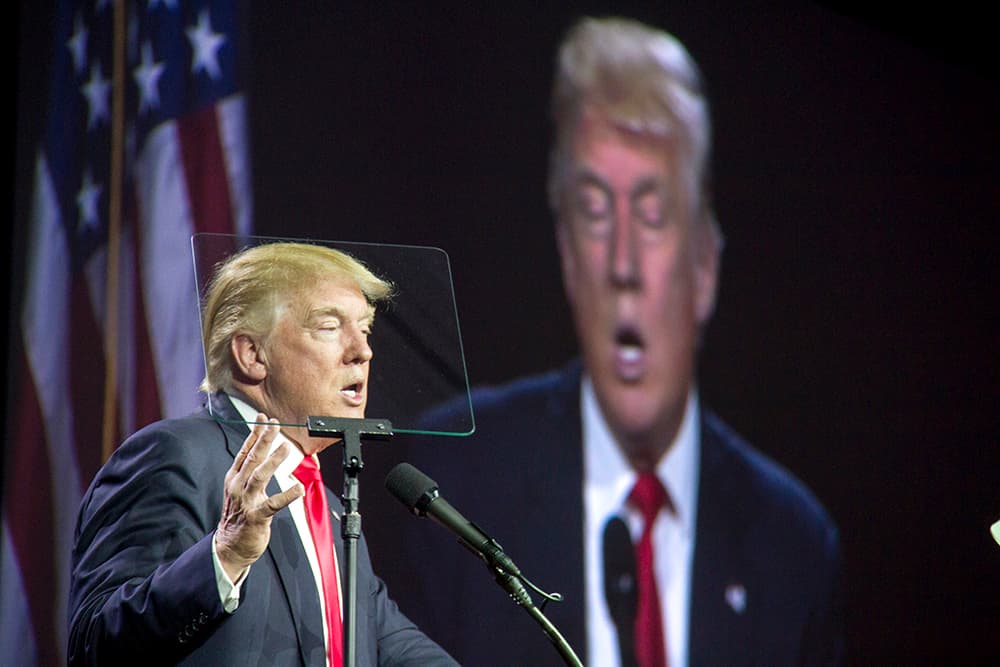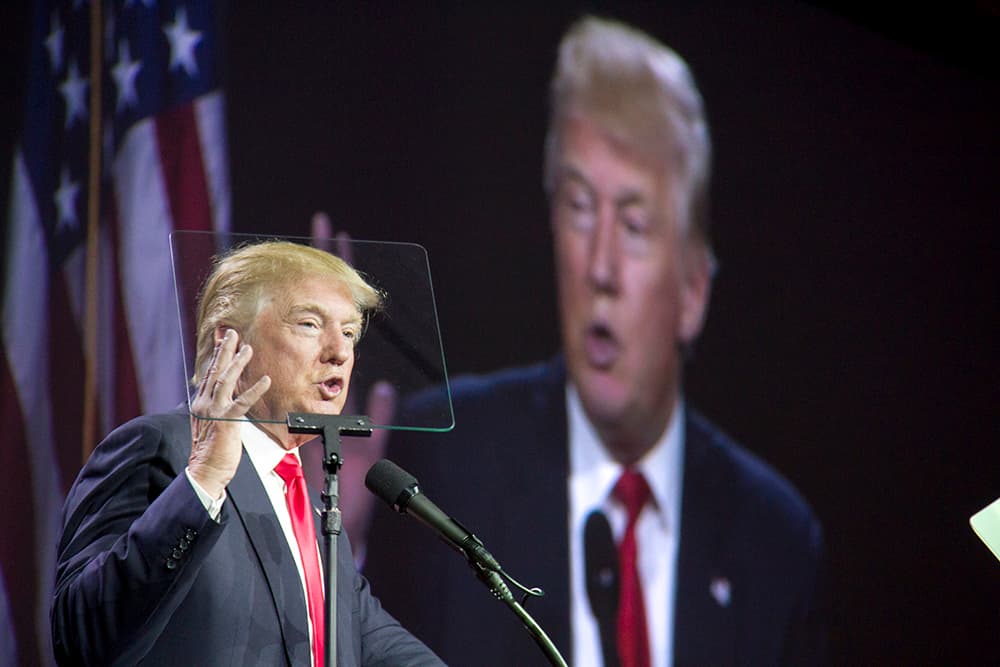
The movement to "free the delegates" and nominate someone other than Donald Trump as the Republican candidate for president was always a long shot. Now it's no shot.
The Washington Post was at the day-long meeting of the rules committee and reported that the anti-Trump side was so thoroughly defeated that the tally of votes wasn't even recorded.
Paul Manafort, chairman of the Trump campaign, tweeted triumphantly.
The rules committee meeting sounds like it was dramatic and boring at the same time, with suspiciously timed printer jams and closed door confabs.
Kendal Unruh, a longtime Republican Party activist and rules committee member from Colorado, is a key figure in the Free the Delegates movement.
What exactly did these rebels hope to do?
Trump needs 1,237 delegates to get the nomination on the first vote, and he has 1,543 delegates pledged to him because he won their states through a primary or caucus. Republicans don't have super delegates who can vote any way they please like Democrats do.
That numerical advantage is why the Republican establishment has largely fallen in line behind the inevitability of Trump. Installing a new candidate would look like a coup against the will of the people. And presumably lots of Trump delegates like Trump and want him to be president.
But maybe some of them don't! That's where Free the Delegates and other associated efforts were hoping to change the game.
Unruh hoped to get the rules committee to adopt a change that would allow delegates to vote their conscience. In pressing her case Thursday, she compared this to the conscience clause that Republicans support for doctors when it comes to abortion and called it a "God-given right."
"The right to conscience is not just something that we’ve decided is a cool idea, but we feel it’s the basis of our nation," she told the committee.
"It’s why we have the Bill of Rights. It’s the reason you can’t force a doctor to perform abortions."
If Trump opponents couldn't get a majority of the 112-member rules committee to support this change, then they hoped to get 28 members to back it. That would lead to the issuance of a "minority report," and the matter would go to the full convention for a vote.
But it wasn't to be.
So what does this mean?
It means we get the spectacle of the convention that Trump's campaign has promised, with celebrity speakers and the entire Trump clan (along with Colorado Republican Senate candidate Darryl Glenn).
Among the disappointed: Conservatives who wanted a different presidential candidate -- Ted Cruz or Scott Walker or anybody -- and political junkies holding out hope for the first contested convention in decades.
Breathing a sigh of relief: Republican Party officials who might not love Trump but who didn't want the convention to descend into chaos. Maybe the Trump campaign, though I'm not sure they were that worried.
What it doesn't mean is that Colorado Republicans will campaign enthusiastically for Trump.
Assistant Editor Erica Meltzer can be reached via email at [email protected] or twitter.com/meltzere.
Subscribe to Denverite’s newsletter here.











